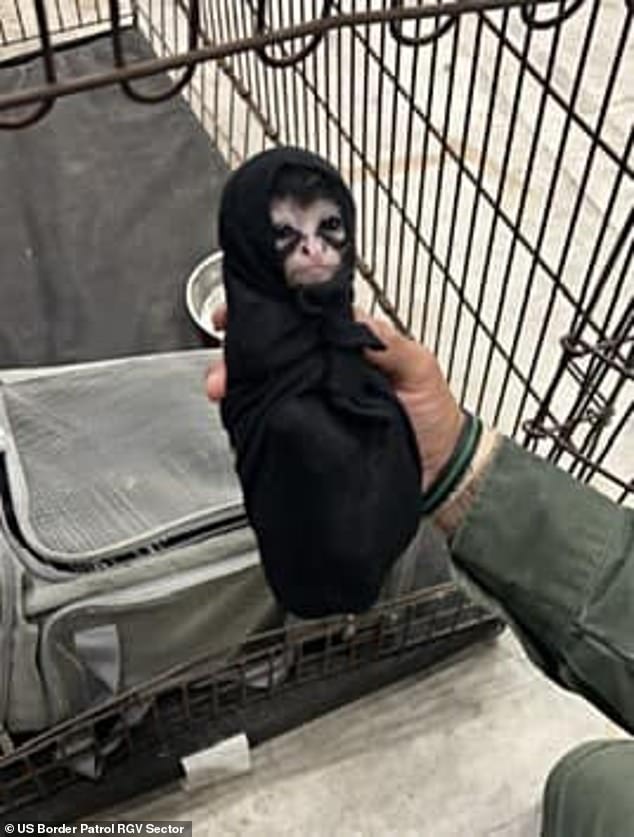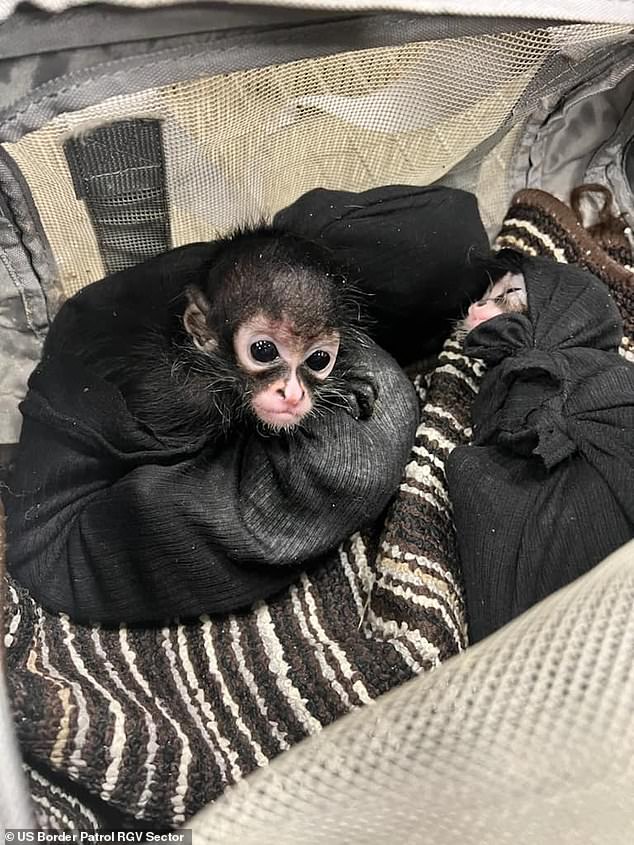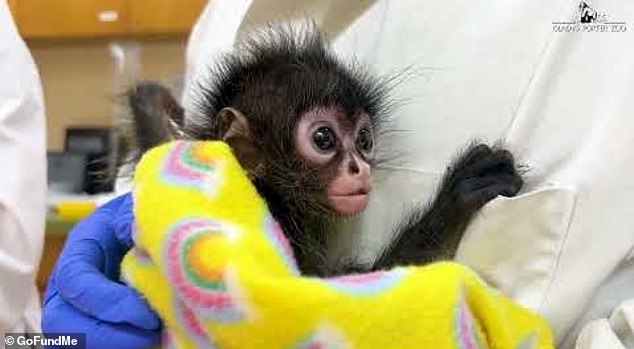- Gladys Porter Zoo cares for baby spider monkeys confiscated from smugglers
- Mexican spider monkeys were placed on the endangered list in 2020
A Texas zoo is struggling to keep up with caring for spider monkeys that have been captured along the southwest border and is now seeking public support to keep them alive.
At least 19 baby Mexican spider monkeys and a howler monkey have found refuge at the Gladys Porter Zoo in the border city of Brownsville since March.
The zoo, which is home to 1,500 other species, had set up incubators to care for some of the spider monkeys that were barely showing vital signs after being discovered in backpacks and hidden inside vehicles.
“This is deliberate smuggling,” Gladys Porter Zoo Executive Director and CEO Dr. Pat Burchfield told Border Report.
Burchfield, who spent five decades at the zoo, was infuriated by the way smugglers have managed to get their hands on the primates, which are native to the forests of Belize, El Salvador, Guatemala and Mexico.
The International Union for Conservation of Nature considers them in danger of extinction since 2020.
The Gladys Porter Zoo, located in the border city of Brownsville, Texas, opened its doors to 19 baby Mexican spider monkeys that have been seized by federal authorities in smuggling incidents.

One of three spider monkeys intercepted by U.S. Border Patrol agents at a checkpoint in Falfurrias, Texas, in March.
“And the sad thing about this is that to get the baby spider monkeys, they killed the mother,” he said. “And the fact that we have 19, means that many more managed to cross the border undetected.”
Zoo staff manually feed the monkeys with syringes every three hours. The animals are placed in incubators that provide heat to their bodies to keep them alive.
Mexican transnational cartels have been increasingly involved in spider smuggling, which is part of the illegal exotic pet smuggling business that generates between $7 million and $20 million a year worldwide, according to Burchfield.
“Now we have large criminal organizations dedicated to animal trafficking,” he said. “Wildlife trafficking has become a major crime around the world.”
Burchfield estimates that the sale of spider monkeys can generate up to $8,000 each from people who see them as “cute.”

The zoo has to keep monkeys away from its 1,500 species for fear they could carry parasites and diseases.

The Gladys Porter Zoo cares for 19 Mexican spider monkeys and two howler monkeys that have been seized by federal authorities, including border agents, along the Texas border with Mexico.

Two of the three monkeys that were found in a vehicle stopped at a checkpoint in Falfurrias in April
In April, U.S. Border Patrol agents confiscated three spider monkeys covered in black clothing while searching a vehicle at a checkpoint in Falfurrias.
In March, Bridiana Mendoza, 26, was about to enter the United States with her three children when border agents stopped her at the Veterans International Bridge in Brownsville and discovered six spider monkeys in her purse and backpack.
Mendoza confessed that he had been offered $7,000 to traffic the monkeys to Houston.
Just weeks before his arrest, CBP agents found two howler monkeys in a vehicle driven by Jesus Arguello, 29, at the Brownsville-Matamoros International Bridge.
At the moment, the 19 spider monkeys are kept separate from other animals at the zoo for fear that they could carry parasites and diseases, including human diseases.
The zoo has been in contact with other zoos for help and started a GoFuneMe account to purchase incubators and create more outdoor enclosures while continuing to care for the monkeys.
Although monkeys can be purchased legally, Burchfield suggested that they are not the ideal choice to keep as pets, as they are more likely to bite as they grow and should not be kept inside homes.


